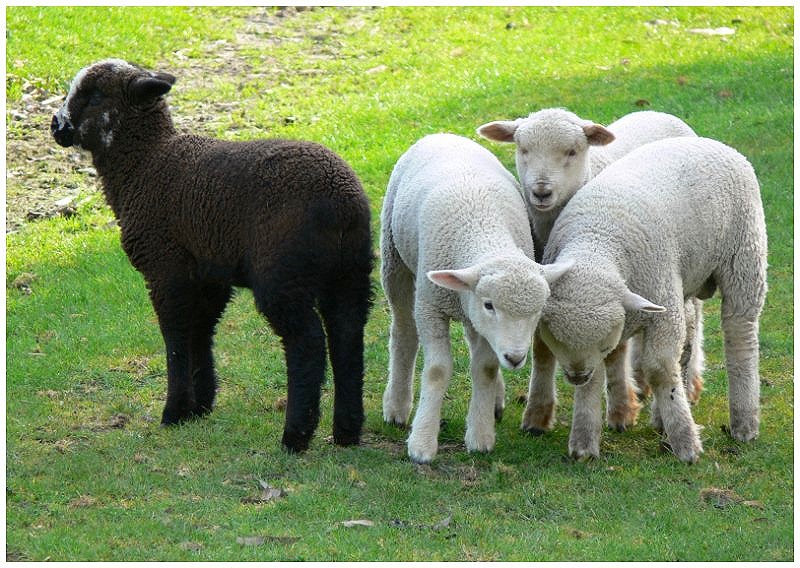|
Joseph S. Salemi _________________
SCREW THE MORALISTS ______________________________
“Black ops” refers to supersecret, unofficial, and possibly illegal intelligence operations. “Wet-work” means assassination. Neither of these events can be acknowledged or even alluded to in recorded communications. They occur when a government wants them to occur, and that’s it. No file or dossier is kept concerning them. In the Doloneia, we read how two Achaean warriors, Odysseus and Diomedes, secretly cross enemy lines on an espionage assignment. In the course of their mission they capture, interrogate, and then kill a counterspy named Dolon, explaining to the luckless man that it is simply not in their interest to let him live. They then proceed coldly to dispatch another twelve sleeping enemy soldiers, including the king of the Thracians. Odysseus and Diomedes return to base safely, bringing back crucial information, much captured materiel, and the blood-soaked garments of Dolon as an offering to Athena. When I teach the Iliad, students often raise an intriguing question about the Doloneia. How, they ask, does the behavior of Odysseus and Diomedes comport with the Greek ideal of a warrior’s aristeia, or “noble excellence” in battle? If aristeia is manifested in courageous confrontation with an armed enemy, how can killing a captured spy, or unarmed sleeping soldiers, be anything other than cowardly and base? There’s no satisfactory answer to this question. Black ops and wet-work are merely the less savory side of human conflict, a warfare without heroism or drama. They are done out of necessity and exigency, and the moral sense that we bring to judge ordinary human acts is held in abeyance. There isn’t an intelligence service on this planet that doesn’t indulge in illegal acts and assassination when it is politically necessary to do so, no matter what pious claptrap governments feed to their citizenry. Only stupid liberals are disturbed by this fact. In the poetry world, squeamishness about morals is a disabling limitation. It prevents a poet from following his inner promptings. And in literary criticism it conduces to the infantile view that poetry is expected to support a certain moral view of the universe (i.e. one’s own). In other words, no poem is allowed to raise an issue or take a stance that conflicts with the critic’s ethical or political code. This aesthetic attitude is what you might term The Playground Consensus School of Poetic Appreciation. As long as a poem comports with our little set of rules and regulations, as long as it doesn’t threaten our orthodox pieties, as long as we can fit it into what We-And-Our-Enlightened-Community accept as the proper way of viewing life and behavior, then it’s OK. It has our Good Housekeeping Seal of Approval. But if it doesn’t meet these criteria—well then, it isn’t good poetry, or it isn’t poetry at all. We can reject it tout court, without even considering its technical merits. This attitude is extremely common among Americans, who still suffer from a Puritan hangover, and especially among women, who are timorous and conformist by nature. You see this attitude materialize on website workshops all the time. Someone writes and posts a poem. Someone else reads it and immediately charges that it is “offensive.” (This is now a recognized code word for signaling to a poet You’re in potential political trouble!) The poet lamely tries to explain that his poem ought not to be considered “offensive” for such-and-such reasons. Others chime in, either amplifying the attack, or doing their best to deflect it by coming up with even more complex reasons why the poem in question can be seen as within the pale of propriety and decorousness and bien-pensant orthodoxy. On and on it goes, and eventually anyone taking part in the discussion internalizes this implicit lesson: Don’t post any poem that questions the ethical or political assumptions of our readership! You can attack the views of outsiders with impunity, but not OURS! When I read these exchanges, I find myself wishing that the poet would respond to his attackers by saying something along these lines: “Why should I give a swiving hump over the fact that you are disturbed or offended by my poem? Do you think I write poems to keep you comfortable?” That’s what a mensch would say. But the workshops and chatrooms are populated by mice. In common with all of the arts, poetry has no necessary link with morality. It may be linked with morality, or it can be linked with morality, or it might be linked with morality, but as the irrealist tenses suggest, the linkage is purely optional. As with dreams, you can do whatever you like in a poem. People for whom morals are the paramount concern of life can’t understand this. Like Sunday-School teachers or scoutmasters, they obsess about “what is right,” and they are utterly dumbfounded that others don’t feel the same way. They stare at you in open-mouthed amazement when you tell them you don’t care a rap about their morality mongering. The only way to deal with such people is to ignore them totally, and to write your poems. And remember that nothing gets done in the world without a little black ops and wet-work.
Joseph S. Salemi has published poems, translations, and scholarly articles in over one hundred journals throughout the United States, Canada, and Great Britain. His four collections of poetry are Formal Complaints and Nonsense Couplets, issued by Somers Rocks Press, Masquerade from Pivot Press, and The Lilacs on Good Friday from The New Formalist Press. He has translated poems from a wide range of Greek and Roman authors, including Catullus, Martial, Juvenal, Horace, Propertius, Ausonius, Theognis, and Philodemus. In addition, he has published extensive translations, with scholarly commentary and annotations, from Renaissance texts such as the Faunus poems of Pietro Bembo, The Facetiae of Poggio Bracciolini, and the Latin verse of Castiglione. He is a recipient of a Herbert Musurillo Scholarship, a Lane Cooper Fellowship, an N.E.H. Fellowship, and the 1993 Classical and Modern Literature Award. He is also a four-time finalist for the Howard Nemerov Prize. His upcoming books, Gallery of Ethopaths, and a collection of critical essays, are forthcoming. He also acts on occasion as a poetry contest judge. |
 One
of the earliest descriptions of what the intelligence services term
“black ops” and “wet-work” is given in the tenth book of the Iliad,
sometimes called the Doloneia after one of the characters. It’s an
extremely unpleasant book, as is much of the Iliad for anyone
with a weak stomach, or a sentimentalist view of warfare.
One
of the earliest descriptions of what the intelligence services term
“black ops” and “wet-work” is given in the tenth book of the Iliad,
sometimes called the Doloneia after one of the characters. It’s an
extremely unpleasant book, as is much of the Iliad for anyone
with a weak stomach, or a sentimentalist view of warfare. 